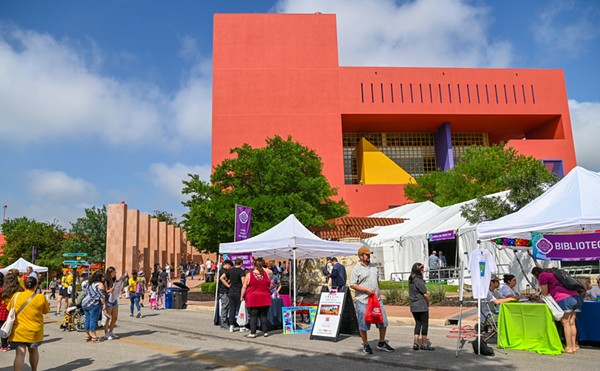In 'Desert Blood' an academic turned gumshoe tries to unravel the web of lies that hides the Juárez women's murderers
| |
It's 1998, and someone has been killing Juárez women for five years, in steadily increasing numbers since the passage of the North American Free Trade Agreement opened border towns like Juárez up to foreign investment and rapid industrialization. Scores of companies have moved in and attracted thousands of Mexicanos from the country's interior with the promise of good-paying jobs and the lure of further migration. And why not? The televisions and textiles they assemble cross northward, as do the owners and consumers of commerce. These poor, peasant, brown-skinned women lack that luxury, although they form an integral component of this simple equation. Gaspar de Alba's book begs the question, What price do we pay? What is the cost, in human lives, for the low-priced electronic goods and hand-sewn fineries those of us living in the States purchase?
When Ivon Villa, Desert Blood's protagonist, returns to El Paso at the start of the novel, she's barely aware of the deadly events in her hometown. During her inbound flight she reads a piece in Ms. Magazine on the maquiladora murders. She's unsettled by the crimes and upset at her ignorance, but that's not what brings her back to Texas. Villa and her partner, Brigit, have decided to become parents by adopting a baby across the border. A sympathetic priest and her cousin help her cross through those murky moral waters but when the body of the birth mother, a young girl working at one of the factories, turns up mutilated, Villa must confront the story she has only read about. When her own sister goes missing, she's thrust in the midst of the mystery.
| |
As Gaspar de Alba shows through her graphic, unsettling descriptions of the perpetrators' words and deeds, the climate that allows this intense verbal and physical violence against women pervades all aspects of society, in Mexico and the U.S. Parts of her novel are shocking and disturbing, but the tale should shock and disturb, like the real-life horror story it is, if only to underscore the conspiracy of silence surrounding the case.
| Desert Blood: the JuÁrez murders By Alicia Gaspar de Alba Arte Publico Press $23.95, 346 pages ISBN: 1558854460 |
"We don't need to be asking who is killing the women of Juárez; we need to ask why they're being killed. Whose interest is it serving?" Gaspar de Alba said at a recent book signing. "The silence protects the perpetrators and allows them to ply their trade with impunity."
The real-life Ivon Villas of the world are out there, individuals and groups such as Nuestras Hijas de Regreso a Casa, working, writing, agitating, and remembering. Desert Blood demands that we add to their voices, and break the silence. •



















